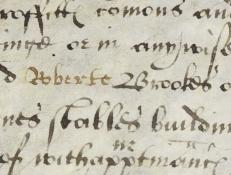To view a sortable list, please visit the Resource
All Documents
1606
SHAKESPEARE DOCUMENTED IS STILL GROWING! Descriptive content and transcriptions will continue to be added, updated and expanded. Check back for regular updates!
ca. 1606
In several scenes, the Cambridge University play Progress to Parnassus mocks the literary tastes and talents of the London commercial stage, depicting Shakespeare as a popular but unsophisticated playwright and poet.
November 26, 1607
Nathaniel Butter and John Busby entered King Lear into Liber C of the Stationers' Company on November 26, 1607, as "Master William Shakespeare his 'historye of Kinge Lear' as yt was played before the kinges maiestie at Whitehall vppon Sainct Stephens night at Christ
December 21, 1608
On August 17, 1608, William Shakespeare (or his family or agents acting on his behalf) began an action in the Stratford court of record to recover a debt of £6 from John Addenbrooke. The case dragged on until at least June 7, 1609.
December 1608
On August 17, 1608, William Shakespeare (or his family or agents acting on his behalf) began an action in the Stratford court of record to recover a debt of £6 from John Addenbrooke. The case dragged on until at least June 7, 1609.
November 11, 1608
Dated November 11, 1608, this is the third of five enrolled indentures of bargain and sale for the Globe site, naming William Shakespeare as a leasee. The Globe playhouse was first built in 1599 on land leased from Sir Nicholas Brend.
May 2, 1608
A Yorkshire Tragedy was entered into Liber C of the Stationers' Company on May 2, 1608, as "A booke Calle A yorkshire Tragedy written by Wylliam Shakespere." This is one of the four times Shakespeare's name appears in the Stationers' Register during his lifetim
ca. July 1605 - January 1608
On January 16, 1598 the Corporation entered a survey of its property into the “Bridge Book” (Minutes and Accounts, v, pp. 124-31).
August 17, 1608
On August 17, 1608, William Shakespeare (or his family or agents acting on his behalf) began an action in the Stratford court of record to recover a debt of £6 from John Addenbrooke. The case dragged on until at least June 7, 1609.
July 20, 1609
John Shakespeare’s property in Henley Street, inherited by his son William in 1601, and now known as the Birthplace, had a frontage of about 90 feet. When an urban property changed hands, its boundaries were often defined by reference to neighboring properties.

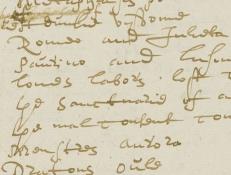
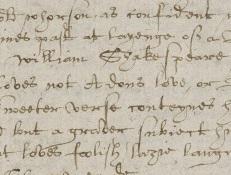
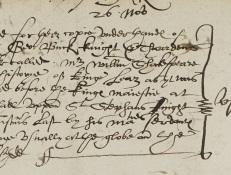
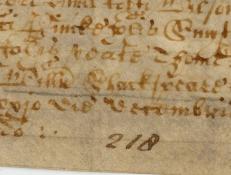
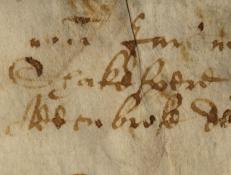
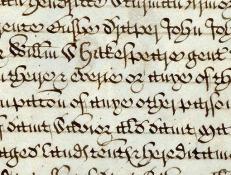
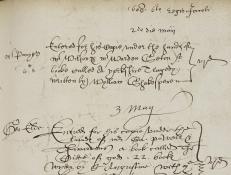
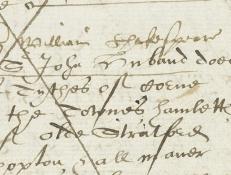
![BRU15/5/139 [2], thumbnail detail](https://shakespearedocumented.folger.edu/sites/default/files/styles/document_thumbnail/public/document-thumbnails/SBT_BRU15_5_139_order_Addenbrooke_Shakespeare_1608_002_thumbnail%20detail.jpg?itok=b9M5JU8q)
